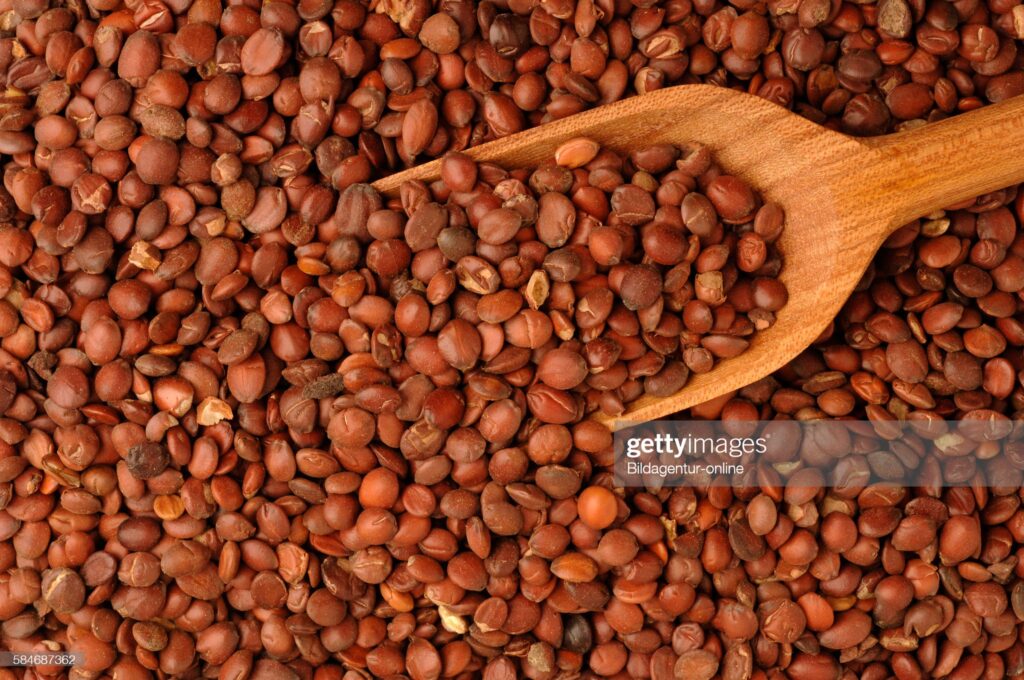
Julia never liked tonic herbs. She had a bad experience with them when she was younger, and refused to take them forever afterwards. Julia was like that. Reflexive and stubborn. Hurt her just once, and a wall would come down that she would never raise again.
I say this not to diminish her experience. Julia suffered from endometriosis, which is widely agreed to be both confounding and shockingly painful. Even now, decades after Julia’s struggle with it, doctors provide few helpful options. If Julia found tonic herbs like peony root and licorice root to aggravate it, I certainly wasn’t going to argue with her about it.
Nevertheless, despite her Chinese heritage, I believe Julia didn’t quite understand how tonic herbs should be used. She described taking peony root and licorice root (in the traditional Chinese formula Si Ni San) daily for many months. You don’t usually take tonic herbs steadily for months at a time, especially for a stagnant condition like endometriosis. Her experience confirmed that: although the herbs initially helped her, they eventually caused her pain to worsen.
Worsening pain is a sign. It’s not necessarily a sign that the formula she was taking was wrong, or that it was harmful. It may have been just what she needed at the time it was prescribed. However the worsening of her pain was a sign that her body had adapted to the formula and it was now creating another imbalance. It needed to be changed.
Tonic herbs can create congestion in the body when taken for long periods of time. Julia was right about that. So, when you start to see signs of congestion, such as pain, you stop the tonic herbs and start taking herbs that will move the congestion. Once the congestion is gone, you can proceed to take the tonic herbs again for another little while. For women with signs of deficiency, the occasional use of tonic herbs is important.
Banning their use is an over-reaction. That’s like throwing the baby out with the bathwater, to use a common phrase. But then, Julia was a reactive person. This doesn’t detract from the fact that she could also be wise and generous and kind. It was just another facet of her personality, and an unfortunate one.
What does this have to do with zizyphus seeds? Well, zizyphus seeds are a tonic herb. They are known in Chinese medicine to “nourish the heart and liver”. And Julia liked herbs that helped the heart and the liver. The heart and the liver were her two favourite organs, since she suffered from both liver congestion and heart palpitations in the past. Back when she first started her business, Julia put zizyphus seeds in some of her tinctures. I can still remember her talking about how wonderful they were.
So, what happened? I’m not sure. There is no indication that zizyphus seeds have estrogenic activity, which is the typical reason Julia would give to discard an herb. However, they do have a stimulating effect on the uterus, meaning that they cause uterine muscles to contract. (Pregnant women should avoid taking zizyphus seeds for this reason).
Julia may have misunderstood that information to mean that zizyphus seeds have estrogenic activity, and that by “stimulating the uterus” they stimulated cell proliferation in the uterine lining. That interpretation would be incorrect, but Julia may have jumped to that conclusion. There was a time when the mere mention of an herb affecting the female reproductive area would cause Julia to discard it. She wouldn’t have been interested in investigating any further.
That is a shame, though, because as Julia well knew, zizyphus seeds have a lot to offer us. They’re great for insomnia [1][2]. They have a real calming effect on the nervous system [3]. They quell anxiety, agitation and fidgeting [4]. They can be used to treat arrythmia and palpitations [5][6]. And they are often used to lower body temperature and stop hot flashes in menopausal women [7]. This is not due to any hormonal effect, but just to the anti-pyretic nature of the herb.
We have since brought zizyphus seeds back into the fold, and now sell a tincture containing them, as well as some other heart nourishing herbs. We call that tincture “Tranquil Heart” for its ability to calm anxiety, help sleep, and relieve heart palpitations. If you’re interested in trying some, just let us know. It’s only available in our store at the moment, but we can add it to your on-line order if you’d like to give it a try. I’ve already heard some good feedback about it.
- Xin Zhong Yi (New Chinese Medicine), 1982; (11):35
- Shang Hai Zhong Yi Yao Za Zhi (Shanghai Journal of Chinese Medicine and Herbology), 1984; (10)30
- Chang Yong Zhong Yao Xian Dai Yan Jiu Yu Lin Chuan (Recent Study and Clinical Application of Common Traditional Chinese Medicine), 1995; 489:491
- Zhong Xi Yi Jie He Za Zhi (Journal of Integrated Chinese and Western Medicine), 1982; 2:97
- Zhong Guo Shou Yi Za Zhi (Chinese Journal of Husbandry), 198814(6):44.
- Di Yi Jun Yi Da Xue Xue Bao (Journal of First Military University of Medicine), 1985; 5(1):31
- Chang Yong Zhong Yao Xian Dai Yan Jiu Yu Lin Chuan (Recent Study and Clinical Application of Common Traditional Chinese Medicine), 1995; 489:491
About the Author: Rebecca Wong has a BA in English Literature from the University of Waterloo and has been working in the herbal business since 2000. She studied at the Ontario College of Traditional Chinese Medicine under respected authorities Paul Des Rosiers and Vu Le, and graduated from the East West School of Planetary Herbology under Michael Tierra. She received training as a yoga teacher at The Branches in Kitchener/Waterloo, and therapeutic yoga teacher training from the School for Somatic Soulwork under Deniz Aydoslu. She now teaches yoga for anxiety, depression and burnout at Rebecca's Restful Yoga Studio in Toronto.
